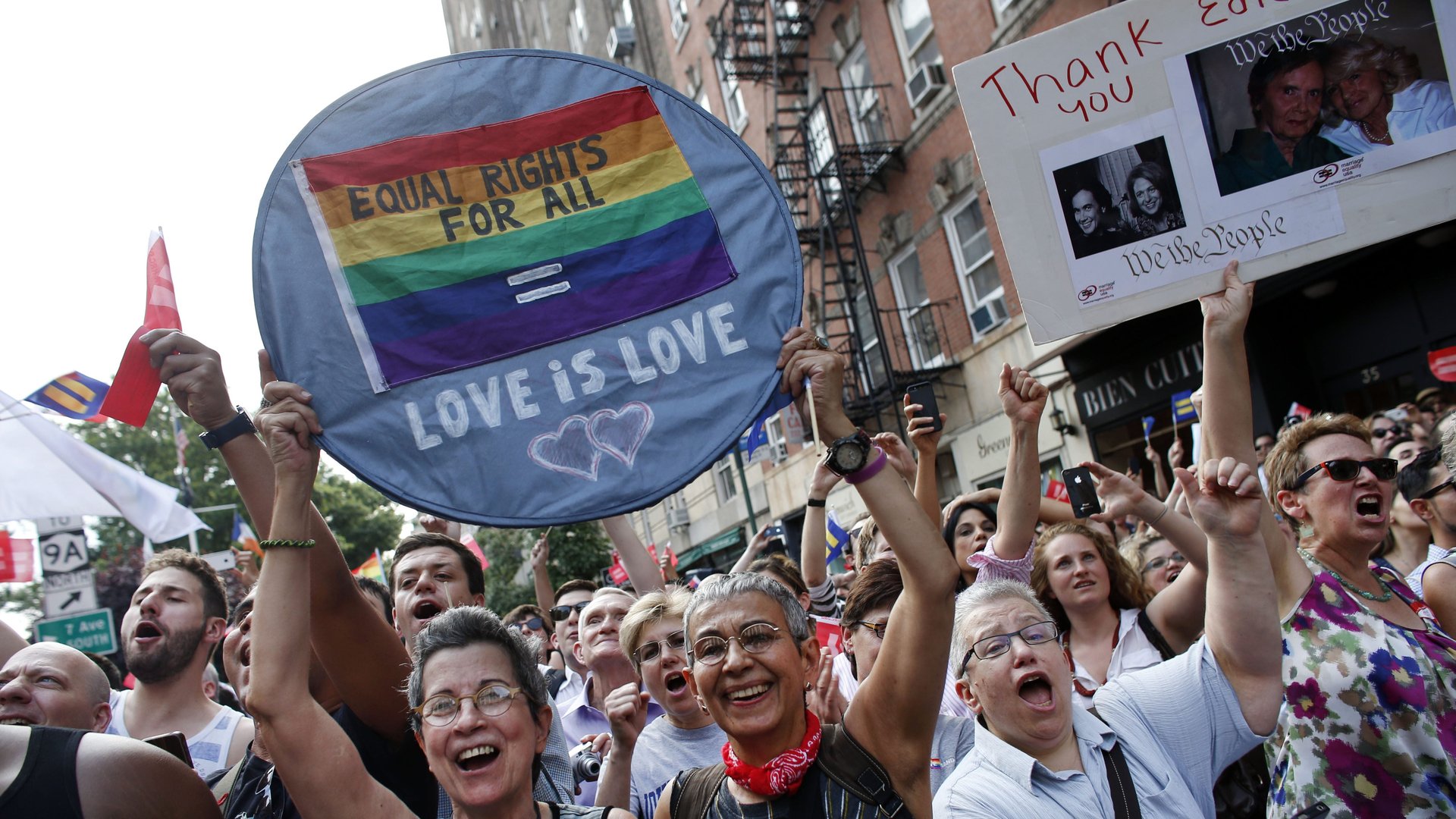A new law gives NYC workers paid family leave for anyone they define as family
Later this year, a new law will go into effect in New York City, allowing workers to use paid family leave to care for anyone they personally define as family, regardless of whether that relationship falls into neat biological categories.


Later this year, a new law will go into effect in New York City, allowing workers to use paid family leave to care for anyone they personally define as family, regardless of whether that relationship falls into neat biological categories.
The city will join only a handful of places in the US that apply a similarly broad definition of family to regulations governing paid sick leave: cities like Los Angeles, Chicago, and St. Paul, and the states of Arizona and Rhode Island. Federal employees, regardless where they live, have similar rights: an executive order signed by former president Obama in 2015 updated federal workers’ paid family leave to include any individual related “by blood or affinity.”
These changes are small but significant steps towards rectifying a dire situation in the US, where, in 2017, only 15% of employees had access to paid family leave. They’re especially important because they recognize a shifting social landscape in which the traditionally-defined “nuclear family”—a married man and woman and their minor children—describes an ever-shrinking number of US families’ actual living arrangements. They also acknowledge the breadth of human relationships that has always existed, and the reality that we don’t always have biological ties to the people we count on the most.
The current project to expand the definition of “family” in order to cover a wider range of relationships under paid leave impacts all Americans. A restrictive definition of “family” may leave out a new mother taking who needs to care for the child her female partner birthed; it may also leave out a woman caring for an ailing friend who became a mother figure after her own parents turned their backs. The definition of “blood or affinity” used by the US Department of Labor in its interpretation of Obama’s executive order contains this unexpectedly moving tribute to the infinite forms that family love takes:
This term means any person with whom the employee has a significant personal bond that is or is like a family relationship, regardless of biological or legal relationship. It could include, for example, an individual who was a foster child in the same home in which the employee was a foster child for several years and with whom the employee has maintained a sibling-like relationship, a friend of the family in whose home the employee lived while she was in high school and whom the employee therefore considers to be like a mother or aunt to her, or an elderly neighbor with whom the employee has regularly shared meals and to whom the employee has provided unpaid caregiving assistance for the past five years and whom the employee therefore considers to be like a grandfather to her.
The roots of this effort can be found in the decades-long struggle of LGBT advocates to force states to update employment-benefits laws to cover domestic partners instead of exclusively “spouses”—a legal relationship that, until recently, most same-sex couples were barred from having. LGBT rights organizations have also been deeply involved in the effort to expand the definition of family, partnering with workers’ rights groups to lobby for more inclusive language in paid family leave bills.
It’s a workplace issue as much as a human rights one. Wendy Chun-Hoon is the co-director of Family Values @ Work, which advocates for more family-friendly policies in the workplace. When her family welcomed their first child into the fold in the early 2010s, Chun-Hoon’s employer gave her leave to care for the new baby and her partner, who was recovering from the pregnancy and birth. But had Chun-Hoon been the one to give birth instead of her partner, her partner’s employer would not have given her leave to care for Chun-Hoon.
“Five years ago I woke up and thought, ‘oh my gosh, the laws that we’re helping to fight for here wouldn’t even cover my own family,’” says Chun-Hoon. Unless the policies were worded specifically to be inclusive, then families like hers could be shut out. “Everybody in this world, a couple of times in their lifetime, is going to have this serious joy or serious crisis where they’re going to need leave,” says Chun-Hoon. Employees—not employers—should be the ones to decide who in their life merits that time, she says. Family Values @ Work was one of several organizations that successfully lobbied New York City and Arizona to include the expanded family definition in recent paid family leave legislation.
By fighting for recognition for their own families, LGBT activists have paved the way for formal recognition of all families. People need time off work to care for the people they love, and the freedom to choose who that is.